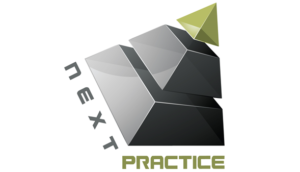
G. K. Chesterton is credited with saying, “I owe my success to having listened respectfully to the very best advice, and then going away and doing the exact opposite.”
That’s not to say that one should seek out best practices, and then not do them, or do the “worst practices” one can think of.
It means an institution’s best practices are best for their situation as it currently is. There may very well be something “better” than “best” available.
And sometimes, provide greater value. Author Michael Fullen says, “It’s misleading and dangerous to take the advice from seemingly successful organizations.”
This comes from his text, “The Six Secrets of Change” and could help to explain why faith-based schools are continuing to struggle, especially after hearing other school administrators give presentations on how they have instituted business practices which are helping them to succeed. School administrators in the audience return to their school inspired to follow suit, implement the successful strategy with renewed optimism, and then are disappointed when the success isn’t replicated.
There are several reasons for this failure.
First, your school may be in a completely different market, with a completely different set of circumstances than the school that espoused the successful practices.
Second, there may be other elements to their success that the presenting school omitted from the presentation. Remember that if all things are systemically connected, all elements of the system are important. Many times, presentations that are like this only focus on one successful element because of time constraints. In reality, the school may have, for instance, five successful elements that work together as a system, but the presenter doesn’t have time to review them all in the time allotted for the presentation. In the interest of staying on topic, they only focus on the presentation they were approved to present, and just don’t discuss how it fits into a framework of success at their school.
In other words, Best Practices are indeed called that for a reason, but how they’re executed may work in one school and not in another.
How do you know processes are working at your school? Is your school experiencing across the board growth? Then the answer would be “Yes.”
Are elements like enrollment and revenue capture trending downward, while marketing is generating more and more inquiries to the school? Then that’s an indicator that something isn’t working, and to continue to do what you’re currently doing will lead your institution to closure rather than to a sustainable future.
As Scott McKain says in his text, “Create Distinction,” best practices are subjective.
As Stephen Shapiro states, and titles his book, “Best Practices Are Stupid.”
If parents are paying four or five-figures for tuition, they EXPECT the BEST – not what’s “good enough.” Remember, just as in the discussions that took place regarding Core Curriculum, “standards” are the minimum benchmark measurement.
Further, if you’re looking to “Create Distinction” for your school and to market its remarkable qualities, you must find what current “raving fan” parents say are remarkable qualities about your school.
And even though your school is unique, there are congruent systems which should be in place in every school. “How” those systems are put into place, monitored and managed make the difference between successive successes or continued concerns.

